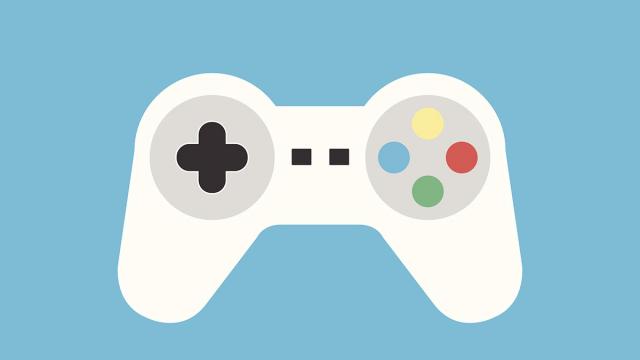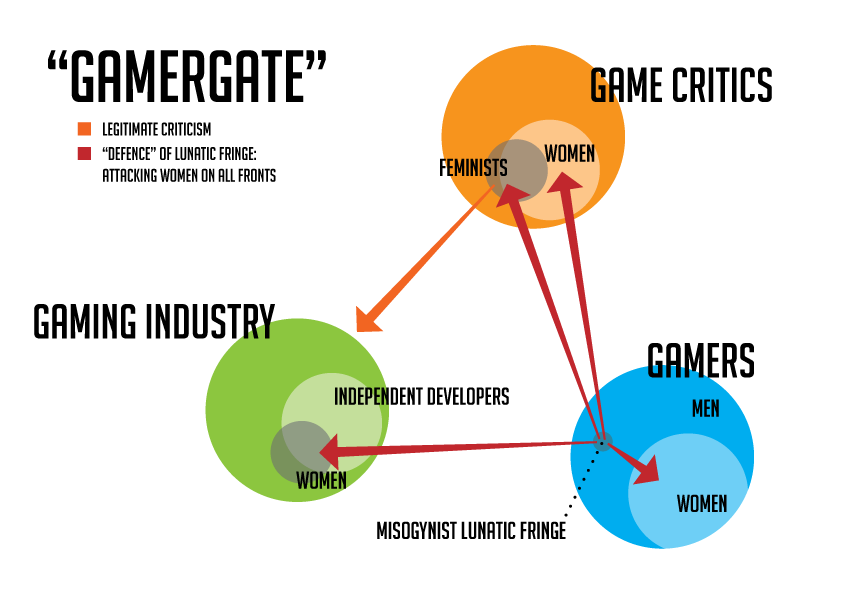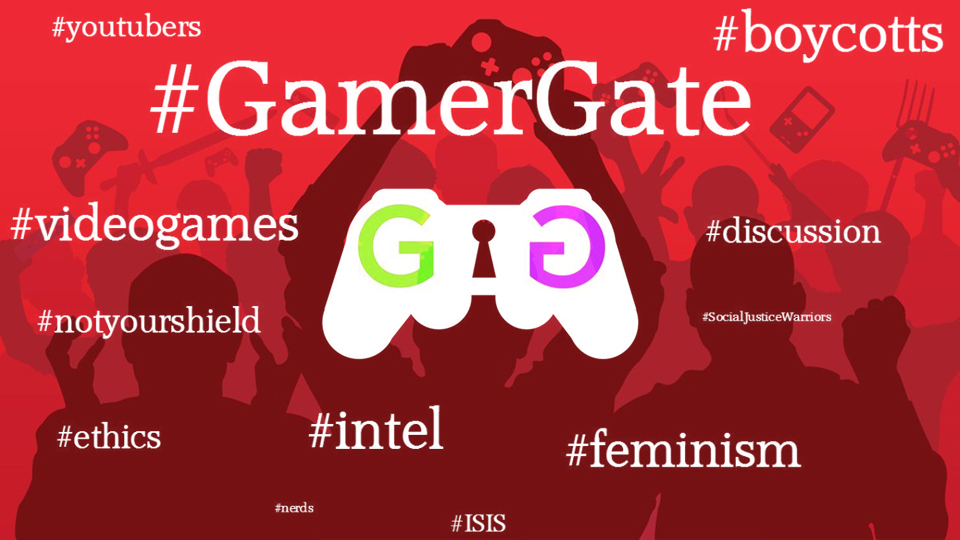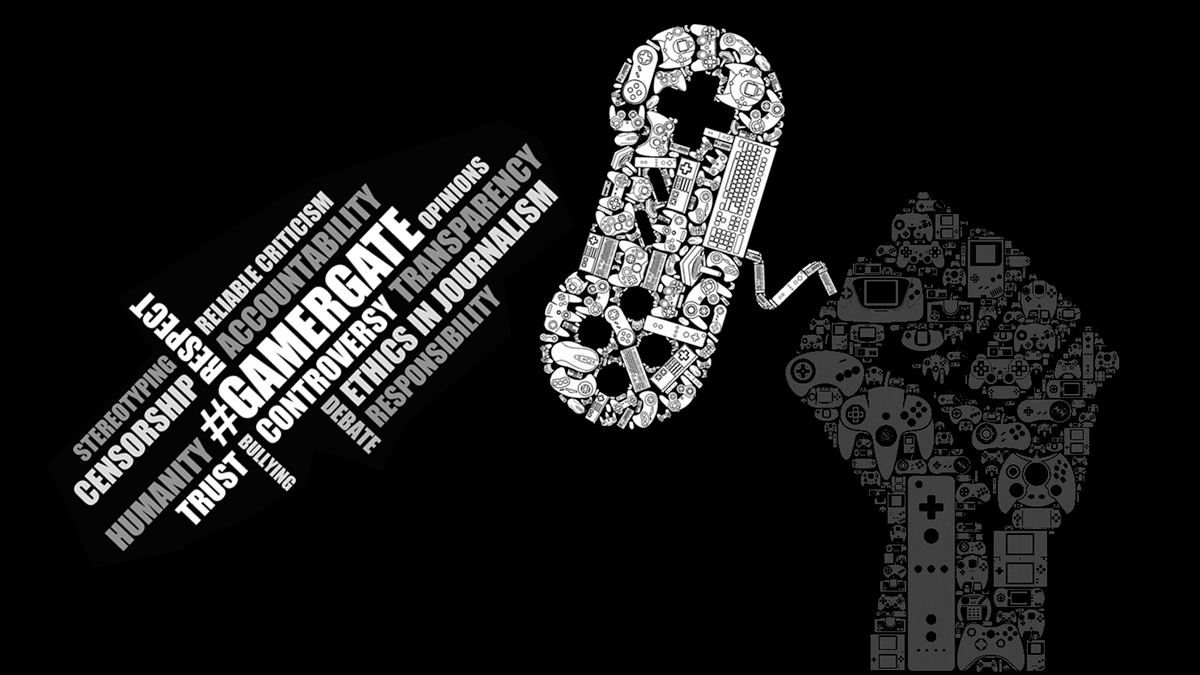
Now rolling into to its fourth month, the video game consumer movement known as #GamerGate continues to evolve in scope and focus as it seeks to advocate for greater ethical standards in gaming journalism. It has moved well beyond the initial catalyst – indie game developer Zoe Quinn’s alleged impropriety with writers reviewing her game, and the subsequent reports alleging she took part in efforts to undermine the non-profit feminist gaming organization “The Fine Young Capitalists.”
Now, the online consumer revolt that is #GamerGate has recently taken its fight over journalistic ethics to new and broader levels, with everything from advertiser email campaigns to making direct contact with the Federal Trade Commission.
Though still faced with a substantial uphill public relations battle, rooted primarily in single-sided media coverage focusing on alleged harassment and abuse allegations claimed by some prominent detractors, the overall morale of those within #GamerGate remains high. The gaming mentality of “grinding” – a term used to describe the "never-quit" attitude of players who continue playing a difficult game despite repeated losses, until they win – is showing to be a central facet of their attitude in respect to what is, in many instances, their first real experience with activism within a popular movement.
Possessed of figureheads in the form of popular twitter and Youtube personalities, the movement has remained largely leaderless, with actions such as the email campaign “Operation Disrespectful Nod,” and more recently numerous charitable and start-up crowd-funding campaigns that have raised tens of thousands of dollars for a variety of projects and causes. Now, seeking to advance further, #GamerGate supporters have begun engaging on an even more aggressive level: emailing federal authorities in the hopes of firming up regulations in respect to corporate transparency and ethical disclosure.
Focused primarily on Gawker Media, which owns the gaming news site Kotaku, “Disrespectful Nod” has succeeded in forcing numerous withdrawals by large corporations from their advertising relationships with Gawker. Accusing the tabloid media company of hypocrisy and bullying, many have referenced the publication's apparent double standard in respect to celebrity privacy – citing its promotion of leaked nudes of certain male celebrities, and its strident defense in the face of a subsequent lawsuit, compared to its pandering tone of popular outrage when a rash of phone hacks dumped similar compromising photos of female celebrities onto the Internet.
Added to this are statements made by “progressive” writers like Sam Biddle and game industry “social justice” darlings such as Alex Lifschitz who, when not calling for an end to objectivity in reporting, are calling on society to “bring back bullying”, all of which has added fuel to the fire. Following the recent discovery that Gawker may have been participating in manipulative and dishonest advertising practices, by publishing embedded links into Amazon promotions without fully disclosing it to the consumer, activists within #GamerGate have taken action by pressing the Federal Trade Commission to look into the alleged violation of disclosure rules.
According to FTC regulations enacted in 2010, blogging and news sites participating in advertising efforts, including affiliate program links such as those common with Amazon, are required to disclose it in “full and conspicuous” ways to readers. Absent such disclosures, activists investigating Gawker noted that the publication implemented the embedded promotional links in planted comments on consumer product polls, allegedly as a means to increase traffic for their affiliate program. While this scrutiny of advertising practices may seem like nitpicking to some, #GamerGate supporters argue that such activities are emblematic of the corruption they see as central to Gawker's and many games' media business models.
No formal investigation into Gawker has been launched, but an undisclosed official within the FTC has responded to inquiries, saying that interested parties could file a petition to request further action. The official said this may not be necessary, however, as the FTC is already working on revising its regulatory guidelines to address the issue.
Branded by many in the mainstream media as a “misogynistic hate movement,” #GamerGate and its relevant activism efforts remain unknown to much of the general public. Recent efforts by feminists in Australia to have the game Grand Theft Auto V pulled from shelves at Target retailers, on the grounds that the game is harmful to victims of sexual violence, have been lauded by #GamerGate’s detractors. But little in the way of genuine activism, outside of media appearances and online propaganda, has emerged from those opposing the movement. Meanwhile, Gawker is claiming seven figure losses in ad revenue as a result of Disrespectful Nod and other charitable, crowd-funding campaigns launched under the #GamerGate banner.
While some have accused the movement – in some cases rightly – of engaging in activities merely for public relations purposes, the organizational and mobilizing efforts of the fledgling activists cannot be denied or ignored. Nor can the catalyst effect it has had generating controversy over purported sexism in video games, matters of free speech, the importance of open debate, or the question of an individual’s “right” not to be offended. With no clear end to the movement in sight, the story of #GamerGate continues on. And if the innovative spirit that sits at the core of the movement is any indicator, the world of video games – and broader Internet culture itself – may come out of this changed.
3 WAYS TO SHOW YOUR SUPPORT
- Log in to post comments

















